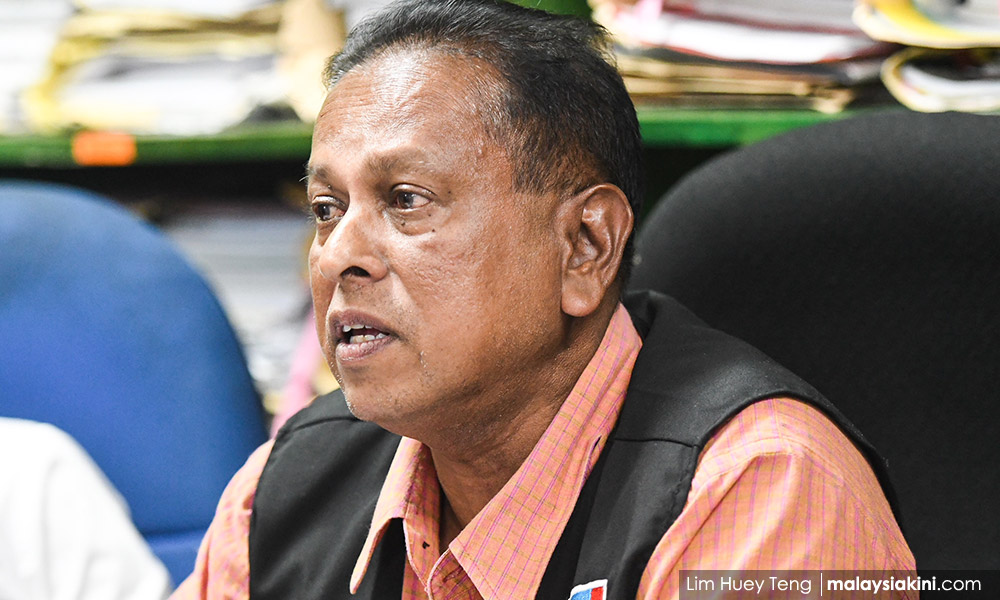COMMENT | This article reviews the regulations prescribing the procedure for the conduct of elections and their amendments in an effort to identify what produced the outcomes in Batu and Rantau.
It then argues that the acts and omissions of the returning officers were neither lawful nor mere procedural irregularities. Instead, they were serious breaches of their duties amounting to illegalities.
Section 4(g) Election Offences Act 1954 describes as an offence the conduct of an officer who is, “without reasonable cause, guilty of an omission in breach of his official duty”. This would be the omission to receive the nomination papers of Dr Streram Sinnasamy.
It would follow that he also is, “without reasonable cause, guilty of an act in breach of his official duty” i.e. declaring elections in Rantau uncontested and returning Mohamad Hasan as the state assemblyperson.
There also appears to be strong evidence that the returning officer then proceeded to commit an offence under section 4 (a) of the Election Offences Act 1954, when he made an entry into records, returns and /or any other document which he is required to keep or make, which he knew or had reasonable cause to believe to be false.
This was the statement that the elections at Rantau were uncontested and that the incumbent for Rantau had been elected.
Prior to amendments to the Elections (Conduct of Elections) Regulations 1981 there were several steps the returning officer must observe or take in accordance with regulation 6.
The returning officer was required to attend at the place of nomination from 9 am until the completion of the proceedings.
Proceedings are 'complete' if he finds that only one candidate stands nominated for that constituency as per regulation 10 or he completes the formalities in relation to a poll to be taken in accordance with paragraph (2) of regulation 11.
These formalities include for example determining how the candidate’s logo is placed on the ballot paper
He could reject nomination papers if
- they are not delivered in person between the hours of 9 am and 11 am by the candidate, his proposer and seconder or of any of them; or
- the papers are not accompanied by a statutory declaration and deposit or deposit receipt as required under paragraph (7) of regulation 4 and paragraph (1) of regulations respectively.
He was not to reject them on grounds of technicalities.
After the nomination papers have been delivered the candidate, his proposer or seconder were allowed to make corrections on the nomination papers in the presence of the returning officer before 11 am in the forenoon; and after 11 am post a copy of every nomination paper in a conspicuous position outside the place of nomination.

This was to permit the candidates and their proposers and seconders and one other person, if any, appointed by each candidate in writing to be present on the day and at the place of nomination between 11 am and 12.30 pm and there and then to examine the nomination papers of candidates which have been received for that constituency.
The 2004 amendments reduced the time for submitting nomination papers from 10 am to 11 am.
It also added a sub-regulation 2A which authorises the returning officer to reject nomination papers that do not comply with these formalities and a regulation 6A which allows the returning officer to mark the limits of the place of nomination and keep order thereby admitting and excluding persons as he deems fit.
The 2012 amendments further consumed the rights of the candidate and the people supporting them by deleting the regulations relating to a) inspection of nominees, b) considering objections from any persons and c) waiver of technical errors.
These amendments converted his role from a neutral actor to one who had new authoritarian powers to ‘reject’ nomination papers.
What about the rule of law?
Although there was only one other candidate, it is unclear what the returning officer was doing after receiving the nomination of Mohamad Hasan.
Similarly, in the case of the nomination papers for Tian Chua (above), it would be necessary for the returning officer to justify Tian Chua's disqualification in accordance with Article 48, of the Federal Constitution.
The words “not less than” appear several times in the Federal Constitution including in relation to amendments to the Constitution.
It would be absurd if this is read to imply that amendments to the Constitution cannot be passed unless supported on second and third Readings, upon attaining the votes of two-thirds of the total number of members.
The text states “…shall not be passed.. unless it has been supported by the votes of not less than two-thirds of the total number of members thereof”.

While this is not intended to be an extensive analysis of the Elections (Conduct of Elections) Regulations 1981, it seeks to highlight how the singular objective of these few amendments has been to disenfranchise the people they represent and to obstruct candidates seeking nomination.
It should be noted that since its enactment through a series of amendments either restricting the rights of the people or enlarging the powers of the returning officer, democracy has been eroded.
However, despite these acts and omissions having the characteristics of offences under the Election Offences Act 1954, given the viral photographs and videos of police obstructing rather than facilitating the integrity of the elections, there is unlikely to be any public confidence in the criminal justice system.
To the office of the public prosecutor which failed to institute a prosecution of parties responsible for the loss of billions in public funds, this incident is unlikely to generate a reaction.
Although Regulation 7(5) and its proviso in the 1981 Regulations state 'the decision of the returning officer shall be final and conclusive for the purpose of the election in respect of which the proceedings are being held, and shall not be called in question in any court, there have been countless decisions by courts locally and globally establishing the legal principle that no decision-maker can presume to have the power to conduct himself ‘illegally’ and expect to retain the authority of law.
There can be no legal justification for preventing entry to S Streram (above) into the nomination hall as the primary function of the returning officer is to receive nominations on nomination day.
Similarly, the rejection of Tian Chua’s papers is groundless. As it has the dangerous effect of perverting the integrity of the elections and the institution of the monarch they purportedly serve, any conduct that subverts the object of their office and the rights of the people, must be a breach of duty and therefore an illegal practice.
RENUKA T BALASUBRAMANIAM is a Malaysian lawyer and PhD candidate at the Melbourne Law School.
The views expressed here are those of the author/contributor and do not necessarily represent the views of Malaysiakini.

